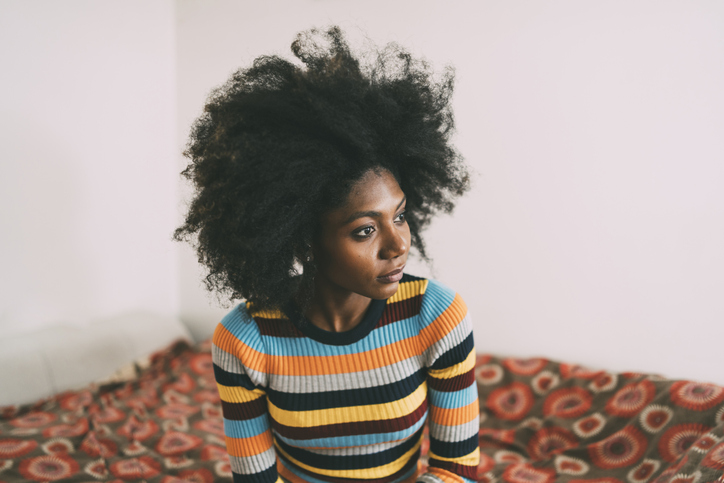How Health Priorities Change As You Age
Share the post
Share this link via
Or copy link

Source: kali9 / Getty
In our twenties, we are very go, go, go! We won’t let anything—from pain to a cold—stop us from doing the things we want. We’ll still go on that ski trip with the friend group, come rain, shine, or sinus infection. We’ll drink alcohol when we have the flu. We’ll take on a massive project while fighting an infection. Those are the years when we just don’t want anything to stop us. And, our idea of what it means to be “healthy” is a bit off, too. We had friends who ate fast food every day and did hard drugs. Compared to them, we felt pretty healthy for picking up our salad kids to have with our steaks, and just sticking to alcohol (nightly) as our substance of choice. But, as we get older, we don’t get to have such a flippant attitude towards our health. We never should have in the first place, but our bodies really don’t let us get away with it past a certain age. Here are ways your health priorities change as you get older.

Source: Ryan McVay / Getty
Love MadameNoire? Get more! Join the MadameNoire Newsletter
We care about your data. See our privacy policy.
Caring about ingredients over calories
It used to be all about calories, calories, calories. And maybe low-fat stuff. But around one’s mid thirties, you start looking at ingredients. You want more wholesome foods. You want food that is not just low calorie but also nutritious, like full of fiber, protein, and healthy fats. You do take vitamins, but you’d also like your food to provide you with most of the nutrients you need.

Source: IronHeart / Getty
Going organic—not just healthy
So long as your shopping basket had some produce in it, you felt pretty good about your eating habits in your twenties. But now, you focus more on having organic food. You like to buy local. You’ve learned more about how eating organic is better for you and the environment, and how important it is to buy local. You think about how the food you buy for your body impacts more than just your body.

Source: PeopleImages / Getty
Always choosing sleep
In your twenties, you’d get away with having as little sleep as possible, so you could do all of the things you wanted. Now, you know that you can’t cheat sleep. All of the energy drinks in the world can’t help you escape the reality that you’re sleep-deprived. You’ll get sick. You’ll get depressed. You’ll make mistakes. You worship sleep now as if it is holy.

Source: skynesher / Getty
Saving alcohol for weekends
Perhaps in your twenties, you had a drink or two every night of the week. You saved the heavy drinking for the weekends, but you certainly indulged in a cocktail or glass of wine each weeknight. Past a certain age, you just can’t have any alcohol if you need to work a full workday the next day. You’ll pay for it. You’ll feel fatigued and suffer brain fog.

Source: SolStock / Getty
Keeping blood sugar stable
It seems the young way of doing things is going, going, going until realizing you’re absolutely starving because you haven’t eaten in 18 hours, eating a lot, and then repeating that cycle. But your blood sugar can’t survive that forever. Eventually, you reach an age when going without food for even four hours can lead to headaches, dizziness, and nausea. You need to snack a bit every few hours to keep your blood sugar stable.

Source: Django / Getty
Understanding the stress element
You may not have taken stress very seriously in your twenties. Perhaps you didn’t have much stress at that age. But now, you know how stress can affect your health. You understand the link between stress and physical health and you won’t just tolerate a stressful person or situation for long. You address it and eliminate it. If you can’t do that, you meditate, take baths, and do what you can on your end to manage the stress.

Source: fstop123 / Getty
Taking more preventative steps
I, personally, didn’t care much about prevention when I was younger. I just lived fast and hard, and got a prescription if that made me sick. Now, I take supplements. I add Echinacea during cold and flu season. I drink plenty of water. I get the flu shot. I wash my hands a lot. I stay away from people who are sick.

Source: Towfiqu Photography / Getty
Supplementing in holistic remedies
There may also come a point when you don’t want to pump too many pharmaceuticals through your body anymore. Or, at least, you’d like to minimize the amount you take. So you learn about holistic ways to minimize symptoms.

Source: Vladimir Vladimirov / Getty
Anticipating burnout
Nobody wants to hit a burnout. It seems we’re almost incapable of it in our twenties but in our thirties, it’s a major risk, and if burnout hits, it can last for days if not weeks. It’s like an illness that takes over the body. As you get older, you do whatever you can to recognize the signs of impending burnout and prevent it.

Source: PeopleImages / Getty
Taking colds and the flu seriously
Remember when you would just party, with a cold? You’d drink alcohol while taking Dayquil. You’d go on the weekend trip with a full-blown flu. You wouldn’t take days off work or school. After a certain age, you learn that that is very dumb, and it’s just a recipe for tripling or quadrupling the length of your sickness.

Source: RuslanDashinsky / Getty
Focusing on gut flora
It’s all about that gut flora when you get a bit older. I don’t know how our bodies tolerate all we put it through when we’re younger, but eventually our stomachs say enough is enough and if we don’t take probiotics and eat gut-healthy food, we face all sorts of issues. You may not have found probiotics in my refrigerator when I was 19 but you will now.

Source: skynesher / Getty
We must be healthy for others
As life progresses, we need to be healthy for others, too. Being sick doesn’t just mean skipping work: it means not being able to take care of our children and our partners. The consequences of our lack of self-care compound.

Source: Ben Pipe Photography / Getty
And we must be health role models
We must also be health role models for our kids and partners. How are we to tell our partners to eat healthier if we don’t? Or to tell our kids to wash their hands and exercise if we don’t?

Source: NickyLloyd / Getty
We prioritize mental health
We eventually realize that ignoring any mental health issues is simply not an option. They will infiltrate our work, our relationships, our friendships, and every element of our lives. Neglecting to go to therapy or seek help is simply not an option when we want control over our lives.

Source: kali9 / Getty
We’re gentler on ourselves
Overall, we’re gentler on ourselves as we get older. We don’t tell ourselves to tough it out or push through the pain when we aren’t feeling well—physically or emotionally. We realize that our bodies really are temples, and we need to take care of them if they’re going to take care of us.







